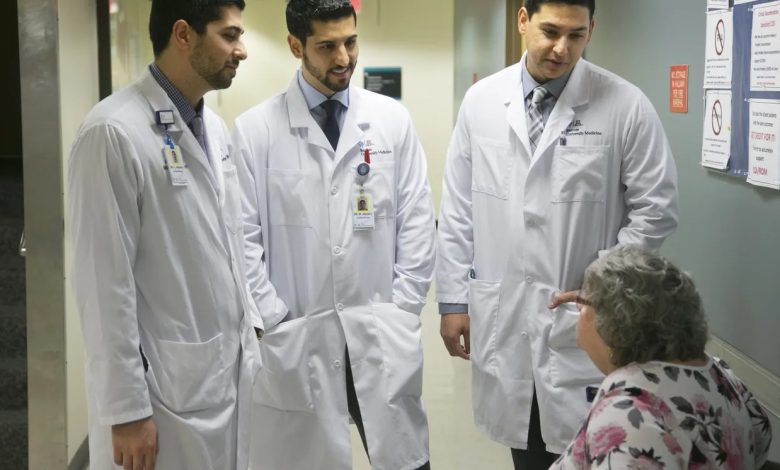Historic Jersey City Hospital Closes Amid Severe Financial Crisis
University Heights Hospital shuts most operations, leaving only emergency services open and raising concerns over community healthcare access.

Jersey City faces a significant loss of a cornerstone institution as University Heights Hospital, the facility that served its community for over a century and a half, officially suspended most operations on Saturday. The closure, resulting from the inability to secure crucial government funding to maintain services and compensate its dedicated staff, leaves only the emergency room operational. The development has shocked the community and ignited heated discussions among local leaders and mayoral candidates about the future of healthcare in the area.
The venerable University Heights Hospital, originally founded as Christ Hospital in 1872, has been an integral part of Jersey City’s fabric for 153 years. Its closure marks an emotional moment for residents who have relied on its care for generations. The financial distress leading to this decision was severe, with the hospital reporting losses of $1.5 million per week. Despite efforts by state legislators to secure a $25 million emergency fund to stabilize operations, the hospital received only $2 million last month, insufficient to prevent the imminent shutdown.
The hospital’s parent company, Hudson Regional Health, which took over University Heights and two other facilities in Bayonne and Hoboken from the troubled CarePoint Health system in April, announced the closure via its social media channels. While the takeover initially raised hopes, the current outcome has drawn sharp criticism, particularly from the union representing hospital staff.
The Healthcare Professionals and Allied Employees Union issued a scathing statement, asserting that Hudson Regional Health had surpassed its predecessor, CarePoint, to become “the worst employer in Hudson County.” The union highlighted the dire situation of its members, who now face unemployment and have gone unpaid for two weeks of work. The situation underscores the human cost of the hospital’s financial collapse, impacting many families and heightening concerns among the local workforce.
The hospital closure quickly became a central issue in Jersey City’s heated mayoral race, with both leading candidates expressing deep concern. James Solomon, one contender, denounced the shutdown as a “tragedy” and criticized Hudson Regional Health’s unacceptable failure to meet payroll obligations. He stated: “They said they would compensate all these employees, and that is our expectation, and we will hold them accountable. But it should never have gotten this far in the first place.”
Similarly, Solomon’s opponent, former New Jersey Governor Jim McGreevey, issued a statement emphasizing the “essential” importance of maintaining the hospital. McGreevey stressed that the primary and legally protected purpose of the site must remain clearly providing healthcare to Jersey City residents. The two Democratic candidates, Solomon and McGreevey, are scheduled to face off in a runoff for the mayoral election on December 2, where the future of local healthcare is expected to be a key issue for voters.
The closure of University Heights Hospital is not merely a financial story; it represents a major blow to the community’s healthcare infrastructure and a challenge for local leadership. As the city navigates this crisis, the focus remains on ensuring healthcare needs are met for Jersey City residents and honoring the legacy of a vital institution, even as its doors largely close.



